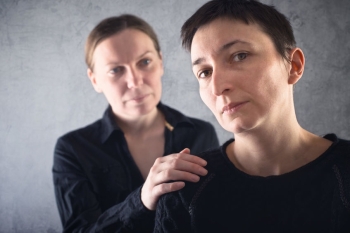
Supporting after a Tragedy: As one is coming back from tragedy and returning to normalcy it can feel weird to be around those who are affected by the tragedy. As people go about their normal day, not talking about a tragedy that has happened, can often feel silencing. It can be saddening, isolating, and infuriating as the tragedy is often in the forefront of one’s mind because it affects someone directly. Due to this, for many it feels like they don’t have the space to talk about it. For others that are affected, the tragedy may be in their mind, but they are not sure how to bring it up with those who are affected. In these cases supporting after a tragedy become important as many can be struggling to process the tragedy. This article will focus on supporting after a tragedy, to help those who want to talk open up the conversation for supporting after a tragedy.
For those approaching someone, supporting after a tragedy and talking about tragedy can be difficult. We are often taught that talking about a tragedy is a taboo thing to do. Even if you feel it’s not, finding the words for supporting after a tragedy often be difficult. Before talking to some, first understand what the tragedy is. If it is on a national level, read a couple articles from those who are affected by the tragedy. This will offer some perspectives of where the person whom you wish to speak to, is coming from. If it is a more personal tragedy, read articles from people who may have gone through a similar experience. Often people whom have experienced a tragedy are often feeling isolated, scared, and confused. This is important to know before speaking to someone.
It’s important to be aware of how emotionally available you are and what support might look like after a tragedy. This means knowing whether or not you can be a consistent support for someone. If you are talking to someone whom you only know as an acquaintance and don’t want to deep your relationship or someone you are very close with, but know that in your current life’s situation you can’t provide consistent future support, then your questions should stick to surface level things. The deeper you dig with questions that get at what the person is struggling with, the more emotional availability it may require. The more someone opens up to you, the more they may rely on you, therefore, your inquiry may look like:
- Hey, there’s been a lot going on…how are you?
- I saw what happened...(insert your feelings)
- What have you been doing for yourself?
Now if you want deepen your relationship with them and / or be a consistent support for someone in the future as they heal from this experience and give more involvement, such as a best friend or close friend, you first want to try to gauge where the person is. To start the conversation ask them questions such as:
- Did you hear about (insert thing)?
- What are your thoughts on (insert thing)?
- I saw about (insert thing), how are you doing?
- I can’t believe (insert thing) happened….
- Hey I heard about (insert thing) are you doing alright?
- Want to join me for (insert thing)?
- How can I help you?
People move through different stages as they experience tragedy. Often the beginning stages include fear, sadness, and confusion. As they move on, the feelings transform into anger and sadness. Finally it comes to a place of acceptance and change. Some individuals may not go through this and are bothered by the tragedy, but don’t feel affected. To get at a person’s emotions listen to keywords. They may say things such as:
- I’m so mad that this happened
- I’m not sure what to do
- It’s super scary
- I’m having a hard time processing this
- I’m so upset by what happened
In the first stage people often need support and comfort. One technique to use is to repeat back major points they say, validate their experiences (e.g. it makes sense that you would feel (insert emotion), especially when (insert situation). Remember that people often are feeling scared, isolated, confused, depressed, and angry. Try to think about how they may be feeling, you can use this article as a reference. Additionally you can use yourself. Putting yourself in someone’s shoes helps us see the world the way they do, thus facilitating connection.
In the second stage people often want to make changes and express their anger. They may need help to find vigils, marches, and organizations to join. In this stage you will want to help the person find healthy outlets for their feelings. Give suggestions such as:
- You could help them identify who the right people are to write letters to.
- You could share their letters are twitter, facebook etc.
- You could help them identify vigils or marches being held?
- You could help them identify organizations that they could join so that they could direct their feelings in a way that might have meaning.
- You could ask them what they need right now?
The last phase may emerge prematurely in some. This doesn’t mean anything bad, but they may have not been affected much by the tragedy. They may say things like “yeah it’s sad, but we can’t focus on the sadness” or “yeah this world is crazy. In this case offer your support and remind the person that you are there for them. For a person who is moving through the stages of tragedy, they may begin to say these things as they come to a place of acceptance. This is okay! Make sure to ask them things such as:
- What will you do now?
- How can I continue to help?
- How are you feeling now?
And sometimes simply giving them the space to not do anything about it, and to not ask questions is supportive. Everybody has his or her own way of processing tragedy. The key is being available when they are ready to talk.
Tragedies are difficult things for anyone to go through. Supporting someone after a tragedy can require a lot of emotional and mental energy. As noted it’s important to know whether or not you’re able to give this to someone. Your support can often mean a world of difference to a person, even if it doesn’t seem like an inconvenience to yourself.
Find a trauma therapist near me. Call a trauma therapist today at the Center for Growth 215 922 5683 x 100























